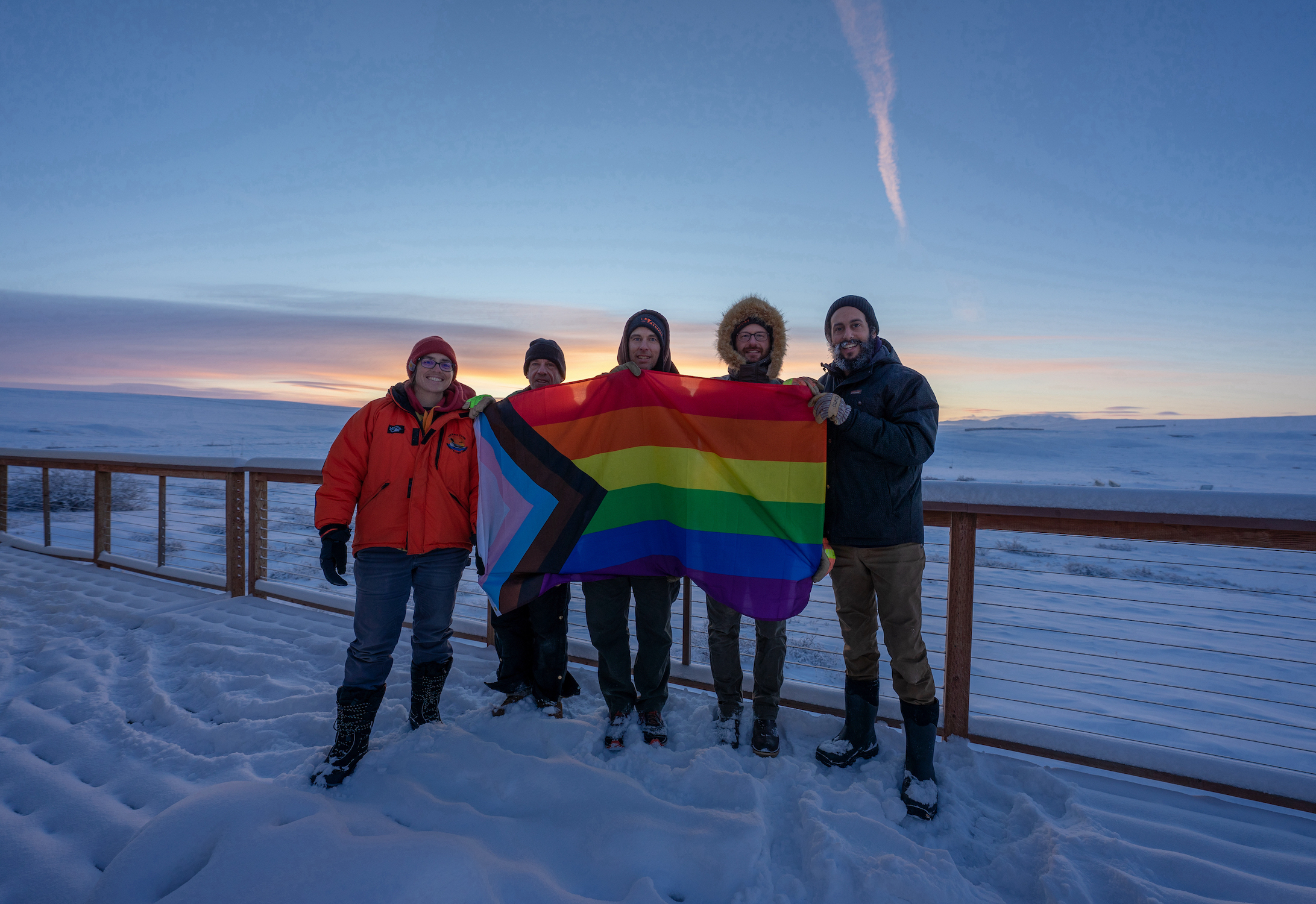Creating a community of respect at Toolik Field Station
UAF staff
Dec. 14, 2022

Toolik Field Station staff and residents celebrate Polar Pride Day in 2021.
For many students in the natural sciences, field experiences are often the deciding factor in continuing a career in science.
ŌĆ£ItŌĆÖs a time when students immerse themselves in the environment theyŌĆÖve been learning about. Scientific concepts come to life and excitement for their career grows. ItŌĆÖs quite a transformative experience,ŌĆØ said Haley Dunleavy, the communications and diversity, equity and inclusion manager at University of “““Į┤½├Į Fairbanks Toolik Field Station.
Yet for students with historically marginalized identities, the same factors that make field experiences transformative ŌĆö remote settings, isolation from the routines of daily life, intense conditions ŌĆö can act as barriers.
For example, a student without access to proper gear, like rubber boots and rain pants, is going to have a harder time researching the tundra than a student with that gear. Negative field experiences can send the message to some students that they donŌĆÖt belong, Dunleavy said. ŌĆ£ItŌĆÖs a feeling that can have lasting consequences for their entire career.ŌĆØ
Toolik Field Station, located on the northern foothills of the Brooks Range, and their collaborators at the Arctic Long-Term Ecological Research program are taking action to offset some of these inequities. During a panel at the 2022 American Geophysical Union fall meeting, Dunleavy will describe their efforts, which include a community gear closet and bystander intervention training.
Dunleavy cautioned that while the barriers can often be daily things that are simply overlooked, others are systemic issues more difficult to address, like the lack of collaboration with “““Į┤½├Į Native communities.
ŌĆ£Our message at the University of “““Į┤½├Į Fairbanks is ŌĆśYou belong here.ŌĆÖ Toolik is making sure we walk that talk,ŌĆØ Dunleavy said.


